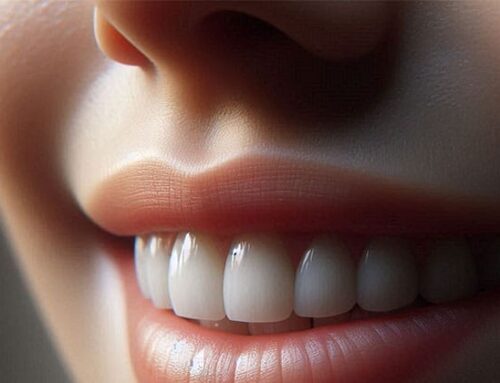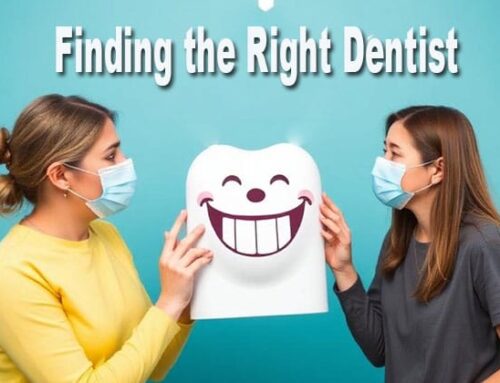Laser Treatment for Gum Disease
When treating gum disease, finding the
most effective and least invasive
treatment option is essential. If
you’re struggling with periodontal
disease, consider laser periodontal
treatment.
(951) 412-0127

Our customers have ranked us the #1 Murrieta and Temecula Dentist with 200 5-Star Google Reviews. Don’t risk choosing a dentist with less satisfied customers. Click Here

Our customers have ranked us the #1 Murrieta and Temecula Dentist with 160 5-Star Google Reviews. Don’t risk choosing a dentist with less satisfied customers. Click Here
Laser Treatment for Gum Disease: Overview & Insights
What Is Laser Treatment for Gum Disease?
Laser-assisted periodontal therapy, commonly using protocols such as LANAP (Laser-Assisted New Attachment Procedure), employs focused dental lasers—often Nd:YAG lasers—to target and remove infected gum tissue and bacteria deep within periodontal pockets. It aims to clean and disinfect while encouraging tissue regeneration rather than cutting or removing tissue.
What are the Potential Benefits of Laser Treatment for Gum Disease?
- Minimally Invasive: Unlike traditional surgeries, laser treatment often avoids the use of scalpels and sutures, resulting in reduced discomfort and faster healing.
- Precision: Lasers can selectively eradicate diseased tissue and pathogens while preserving healthy areas.
- Regenerative Potential: Certain protocols, particularly LANAP, have demonstrated FDA clearance for the regeneration of bone, periodontal ligament, and cementum.
- Less Post-Op Discomfort: Patients report less bleeding, swelling, and pain compared to conventional methods.
Summary: Is Laser Treatment Worth It?
| Pros | Cons |
|---|---|
| Minimally invasive, less discomfort, faster healing | Higher cost, insurance may not cover |
| Potential for tissue regeneration (LANAP) | Scientific evidence mixed; conventional treatments often suffice |
| Precision targeting of diseased tissue | Not universally available; requires specialized training |
| Positive patient experiences in some cases | Some professionals and patients question its necessity |
Final Thoughts
While laser periodontal treatment, such as LANAP, offers compelling benefits—especially for patients seeking minimally invasive solutions—the evidence doesn’t conclusively favor it over traditional scaling and root planing for every case. It’s best seen as one tool among many, potentially valuable when used judiciously on appropriate patients.
Laser Treatment for Gum Disease
Gum disease happens when you don’t care for your mouth. Smoking, hormonal changes, and certain medications can also cause it. It can also be linked to diabetes, having a family history, and other health issues. You can stop by visiting the dentist regularly and looking after your teeth.
If you are worried about gum disease surgery, there is a better option. Our laser gum treatment is perfect. It helps clean the gums and teeth while checking the pockets’ depth. At Promenade Dental Care, you will not spend much time recovering. If you want to learn more about this treatment, call (951) 412-0127. We can explain how it works and what you might feel during and after. Knowing the causes of gum disease and how to avoid them can keep your teeth healthy. It also helps you get quick treatment if needed. This knowledge protects your smile and overall health.
What is Periodontal Disease / Gum Disease?
Periodontal disease, also known as gum disease begins with gum swelling around the teeth. You might first notice your gums becoming red or purple or feel sore. A dental exam may reveal a plaque build-up on your teeth, which can also be a warning sign and may be one of the early stages of gum disease, including signs of gum disease. As the disease worsens, your teeth may feel loose, and you might see pus near your gums. Bad breath can also happen, showing how serious the problem is. If your gums are puffy or bleed, your dentist might suggest brushing and flossing more often. It’s essential to take gum disease seriously, especially at this stage of gum disease. Getting treatment early can help stop swelling and keep it from getting worse. Look out for signs like bleeding gums, puffy red gums, and common symptoms of gum disease like loose teeth.
Acting fast on gum treatment can stop Gingivitis from turning into periodontitis, which is a more serious gum type of gum disease. This can cause serious problems for your teeth and bones. Sometimes, bone loss can be terrible, and a bone graft may be needed. Keeping your mouth clean and using treatments like laser care can help. They can keep gum disease from getting worse. Laser dental treatments are more manageable and help patients feel more at ease. Patients can make better choices about their dental health. Knowing the benefits of laser care is good. They understand what leads to gum disease, like periodontitis and bone loss.
What Are Traditional Gum Disease Treatments?
Taking care of your mouth is important for maintaining good oral hygiene, as the American Academy of Periodontology emphasizes. It helps stop gum disease. This disease is linked to heart problems and other serious health issues. If you have early gum disease, your dentist might recommend a deep cleaning to remove plaque. They could also offer tips to improve your mouth care. This includes brushing with fluoride toothpaste and flossing daily, as well as using floss to ensure optimal dental hygiene. Using an electric toothbrush is helpful. Regular dental visits are essential, too. Also, using mouthwash that kills bacteria can help. Saliva plays a key role in these steps to stop gum disease from getting worse. With proper care, you can keep your smile and have healthy teeth.
If you have gum disease that has become periodontitis, surgery is often the best option. Gingival Flap Surgery is one of the most common surgical procedures for gum disease. In this surgical procedure, the doctor cuts the gums to pull them back from the teeth roots. Then, they clean the area to remove plaque and bacteria from deeper pockets. This is a typical treatment for severe gum disease. There is also a method that uses lasers. This option is less invasive and causes less pain. Lasers can remove extra tissue from the roof of your mouth and assist with healing. This treatment is better for people who want a quicker, less painful option. If you wish to do this treatment, talk to your dentist to determine if it’s right for you.
How do you Treat Gingivitis?
Gingivitis treatments help to fight infection and support the immune system. They can make your gums and teeth feel healthy again. A dentist or gum expert can remove plaque, tartar, and bad bacteria from the surface of your teeth, significantly below the gum line. They do this by doing a deep cleaning done by a dental hygienist. Scaling is a method that goes deeper than standard cleaning. A dental hygienist uses tools, lasers, or sound waves. They get rid of tartar, plaque, and bacteria from your teeth. Regular dental checkups are essential to monitor your oral health. There are also more profound cleaning methods like scaling and root planing. Scaling removes tartar and bacteria, while root planing smooths the tooth roots. This helps your gums stay attached to your teeth again.
What is Laser Periodontal Treatment?
If you have gum disease, consider laser periodontal treatment. A laser can remove swollen tissue and is more straightforward than regular surgery. It can eliminate infected gums with speed and precision. This helps stop future gum disease or infections. Sometimes, healthy gum tissue can grow back after the treatment. This keeps your gums strong and prevents tooth loss. Your periodontist may also use a bone graft to replace any bone lost because of gum disease. This gives extra support for your teeth. The treatment is fast and usually takes just one or two visits to the office.
This treatment is gentler for your body and helps you feel better fast. Many patients prefer this method. It causes less pain, reduces bleeding, and leads to fewer gum problems. If you are considering laser dental treatments, speak with Dr. Bao. He can help you determine if this is your best option.
Lasers are a good option for treating early and some kinds of gum disease. They can focus on the infected areas while keeping the healthy gums safe. This lowers the risk of losing teeth, which is excellent! If you have mild gum disease, laser dental treatments are worth looking into.
Less Pain – Laser treatments hurt less than gum flap surgery. This is great for those who want to minimize pain. You might feel some discomfort during the process. However, your periodontist can use a local numbing solution to help.
It won’t change your bite or smile. After laser treatment, you will be glad to know that you won’t need any stitches. Your bite and smile will stay the same. You will feel like yourself again quickly.
Consider laser treatment if you want to treat gum disease quickly and effectively. This new method can lower pain and bleeding and help you heal faster. The good news is that most patients can use this treatment. If you are interested, talk to your periodontist. If you need more help, Dr. Bao will refer you to one of the best LANAP doctors near you.
Promenade Dental is a trusted dental clinic in Murrieta. They focus on laser treatments for gum issues. Dr. Bao heads a skilled team here to help you feel better quickly. So why wait? Call Promenade Dental now to book your appointment. Start your journey to a healthier smile!
Yes—but choosing the cheapest dentist for a root canal carries some risks. The key factor is quality and experience, not just price. A low price alone does not guarantee poor care, but it requires careful evaluation.
The main risk: higher failure rates
Root canals require precision. Specialists called endodontists have success rates of about 95–97%, compared to 85–90% for general dentists, largely due to more training and specialized equipment. Lower-cost providers may:
- Use less advanced imaging or magnification
- Have less experience with complex canals
- Miss hidden infection or anatomy
- Increase the risk of retreatment, infection, or tooth loss
If a root canal fails, fixing it can cost much more than doing it correctly the first time.
When choosing the cheapest option, it can be safe
It is usually safe if the dentist:
- Has strong reviews and verified credentials
- Performs root canals frequently
- Uses modern equipment (digital X-rays, microscopes, or 3D imaging)
- Provides a clear treatment plan and warranty or follow-up
Many excellent general dentists offer affordable root canals, especially for simpler teeth like front teeth.
When you should avoid the cheapest option
Be cautious if:
- The price is far below the local average
- The dentist rarely performs root canals
- It’s a molar (more complex anatomy)
- The office lacks modern diagnostic technology
Best strategy: balance cost and experience
The safest approach is to choose the most experienced provider within your budget, not automatically the cheapest. Saving $200–$400 upfront is not worth the risk of losing the tooth.
Yes, most dental insurance plans cover root canal treatment because it is considered a medically necessary procedure to save a natural tooth. However, the amount covered and your out-of-pocket cost depend on your specific plan.
Typical dental insurance coverage
Most PPO dental insurance plans categorize root canals as a major procedure, which usually means:
- Insurance covers: 50% to 80%
- You pay: 20% to 50% out of pocket
- Annual maximum limits often apply (typically $1,000 to $2,000 per year)
Some premium plans cover up to 80%, while basic plans may only cover 50%.
Average root canal costs and out-of-pocket estimates
| Tooth type | Total cost | With insurance (50%) | With insurance (80%) |
|---|---|---|---|
| Front tooth | $600–$1,000 | $300–$500 | $120–$200 |
| Premolar | $700–$1,200 | $350–$600 | $140–$240 |
| Molar | $900–$1,500 | $450–$750 | $180–$300 |
These numbers are typical — all insurance plans are different.em>
Molars cost more because they have more canals and are harder to treat.
Important additional costs
Insurance often covers these at different rates:
- Exam and X-rays: usually 80–100% covered
- Crown after root canal: typically 50% covered
- Specialist (endodontist): may cost more than general dentist
Waiting periods and limitations
Some plans require a 6–12 month waiting period before covering major procedures. Also, if you have already reached your annual maximum, you must pay the full cost.
Best-case and worst-case scenarios
- Best case: $150–$400 total with good insurance
- Average: $300–$700 out of pocket
- No insurance: $600–$1,500 total
Lowest-cost charity and sliding-scale options for root canals (best for under $500)
These are often cheaper than private clinics:
- Riverside University Health System Community Health Centers (sliding scale)
- Neighborhood Healthcare (Temecula)
- Loma Linda University School of Dentistry (student-performed, supervised)
Typical cost at dental schools: $300–$700
Cheapest overall option (if eligible)
- Medi-Cal (Denti-Cal): root canals may cost $0–$200 total
- Dental schools: usually lowest cash price without insurance
Finding the cheapest root canal in Murrieta, CA usually involves comparing general dentists, dental chains, and endodontists that offer payment plans, insurance acceptance, or discount programs.
Ask your dentist at Promenade Dental Care about affordable options to consider.
To get the lowest price, ask for a cash discount, payment plan, or membership savings plan. Also compare general dentists versus specialists, since general dentists are often less expensive. Expect root canal costs in Murrieta to range from about $600 to $1,400 depending on the tooth, complexity, and whether insurance is used.
Laser-Assisted New Attachment Procedure (LANAP) is an FDA-cleared, minimally invasive laser treatment designed to address moderate to severe periodontal (gum) disease. Unlike traditional gum surgery, LANAP utilizes the PerioLase® MVP-7™ laser to selectively remove diseased tissue and bacteria while preserving healthy gum tissue. This approach promotes the regeneration of bone and connective tissue, leading to improved oral health outcomes.
Key Benefits of LANAP:
- Minimally Invasive: The procedure does not require cutting or suturing, resulting in less discomfort and faster healing times compared to conventional surgery.
- Reduced Bleeding and Swelling: The laser’s precision minimizes trauma to the gums, leading to less bleeding and swelling during and after the procedure.
- Preservation of Healthy Tissue: LANAP targets only diseased tissue, leaving healthy gum tissue intact, which helps maintain the natural appearance of your gums.
- Bone Regeneration: The treatment stimulates the regeneration of bone and connective tissue, potentially saving teeth that might otherwise be lost to periodontal disease.
Mild soreness or sensitivity for a few days is common and can usually be managed with over-the-counter pain relievers. Most people return to normal activities the same or next day.
After the procedure, a temporary filling may be placed. Most patients need a dental crown or permanent restoration filling to fully restore strength and appearance to the tooth.
A root canal typically takes 1–2 visits, depending on the severity of the infection and the tooth being treated. Each appointment typically lasts between 60 and 90 minutes.
Modern root canals are not painful. With local anesthesia and advanced techniques, most patients experience little to no discomfort—similar to getting a filling.
Common symptoms include:
– Severe toothache when chewing or biting that may indicate a cracked tooth.
– Lingering sensitivity to hot or cold.
– Swelling or tenderness in the gums.
– Tooth discoloration.
– A small bump or abscess on the gums.
A root canal is a dental treatment that removes infected or damaged pulp (soft tissue) inside a tooth. The canal is then cleaned, disinfected, and sealed to save the natural tooth.
A tooth’s pulp or nerve endings are damaged from tooth decay. Tooth decay is the result of microorganisms within the tooth. This interaction causes the excretion of acidic substances. This happens when patients do not brush their teeth regularly. This leaves food particles. These particles feed the microorganisms. The bacteria excrete acidic waste products that damage the tooth and cause decay.
Root Canals are carried out when the damage is intense and painful. There are three alternatives. One is considered radical — pulling the tooth. The second involves dividing a tooth in half. Then the dentist repairs the injured root or removes one or more roots. Intentional replantation may also be performed. This requires the dentist to remove the tooth. When out, the tooth is treated. Finally, it is returning the tooth after the treatment.
The cost of root canals is dependent on the dentist and the type of tooth fixed. For example, molars and premolars are more expensive than canines and incisors. The average prices of molars range from $800-$2,000. Bicuspid root canals are from $700-$1,800. The front teeth are $500 to $1,500.
The nerve tissue or pulp has been damaged by bacteria. This will cause infections within the tooth. It can also lead to pus forming at the end of a tooth root. This swelling may spread to other parts of the body, including the head and neck.
An endodontist is a dentist who specializes in root canals or endodontic treatments. All endodontists are dentists, but not all dentists are endodontists. Endodontists must attend different dental schools and training to become certified to specialize in root canals.





